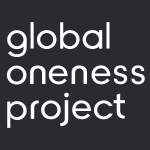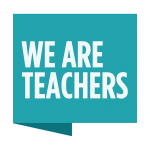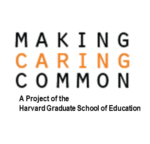Social Justice
UTEC’s mission is to ignite and nurture the ambition of Lowell’s most disconnected young people to trade violence and poverty for social and economic success.
UTEC’s nationally recognized model begins with intensive street outreach and gang peacemaking, reaching out to the most disconnected youth by meeting them “where they’re at.” UTEC engages youth in workforce development and alternative education. Social justice and civic engagement are embedded in all programming, with special emphasis in our youth-led grassroots organizing, locally and statewide.
Stand Together is committed to breaking the cycle of poverty and believes that individuals and communities across the country are the key to discovering innovative solutions to the root causes. They’re redefining the way that social change happens by identifying and supporting social entrepreneurs and community-based solutions that help people in poverty transform their lives.
WAISN’s ICE reporting hotline as well as a text-message alert system. Hotline number: 1-844-724-3737 (1-844-RAID-REP) text “JOIN” to 253-201-2833
Everyone in the U.S. has certain rights guaranteed under the U.S. Constitution, regardless of your immigration status. You can’t always control whether you will come in contact with immigration or law enforcement. It is important to know and practice these scenarios so that you and your friends, family, and colleagues are prepared for any situation. Understanding what your fundamental rights are and how to use them will help you advocate for yourself and respond appropriately if you encounter the police or immigration enforcement.
The Global Oneness Project believe that stories play a powerful role in education. Founded in 2006, as an initiative of Kalliopeia Foundation, they are committed to the exploration of cultural, environmental, and social issues. They house a rich library of free multimedia stories comprised of our award-winning films, photo essays, and articles, accompanied by companion curriculum for teachers.
NCCJ provides resources that contain history, videos, statistics, articles and more. We all hope you find this information helpful and informative. NCCJ Resources can be used in clubs, classes, meetings, sharing with family or friends and just as an educational piece for your own learning.
Here are 21 free resources for social justice lesson plans.
The Understanding LGBTQ+ Identity: A Toolkit for Educators Collection offers a series of digital media resources to help administrators, guidance counselors, and educators understand and effectively address the complex and difficult issues faced by LGBTQ students. The collection features short segments of video content from WNET’s groundbreaking LGBTQ series First Person, a digital series that delivers candid personal narratives illustrating larger conversations about gender, sexuality, social norms, and identity development. The video content is scaffolded by a suite of materials (informational text, conversation guides, discussion questions, and teaching tips) to facilitate their use in professional development settings. When used in tandem, the videos and accompanying educational resources will help promote understanding, awareness, and self-esteem.
Making Caring Common, a project of the Harvard Graduate School of Education, helps educators, parents, and communities raise children who are caring, responsible to their communities, and committed to justice.
Use these tools produced by National Geographic to help provocate thinking, spur dialogues, and guide conversations regarding race, diversity, inclusion, and justice.
Use this resource published by Edutopia as a guide to equity and antiracism in classrooms and programs.
In this article published by the National Association of School Psychologists, researchers discuss how trauma affects youth and how it affects their school functioning as well as how schools can use a trauma-informed approach.











